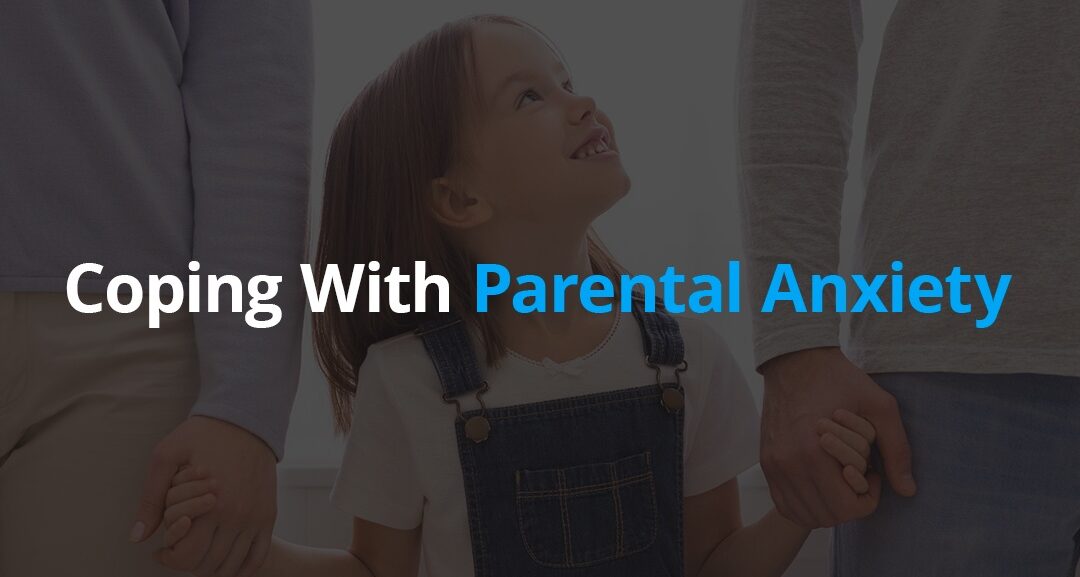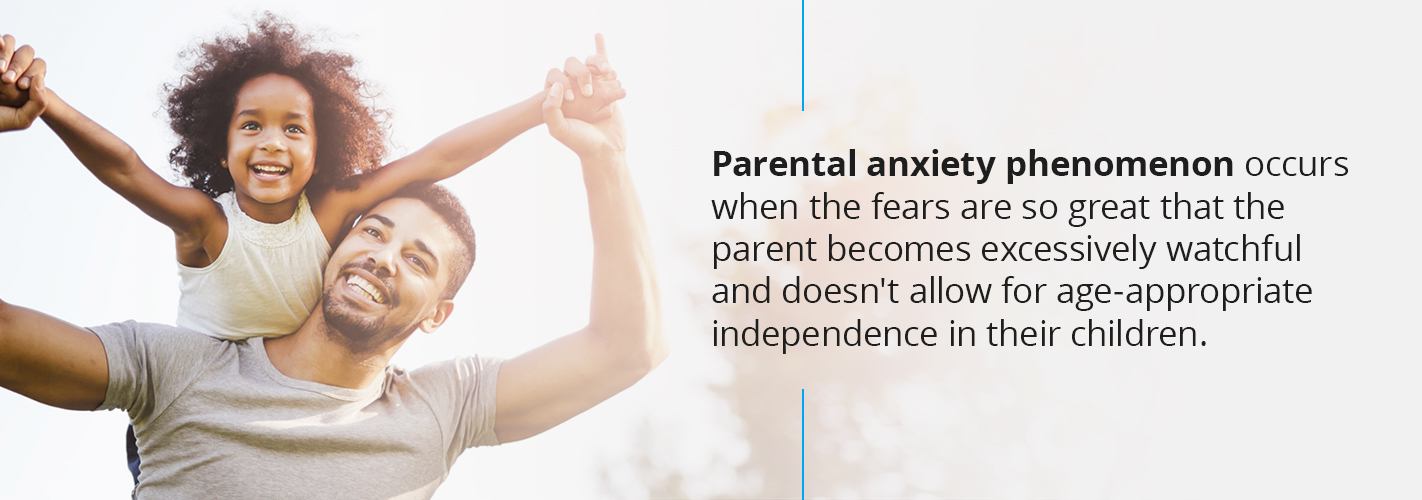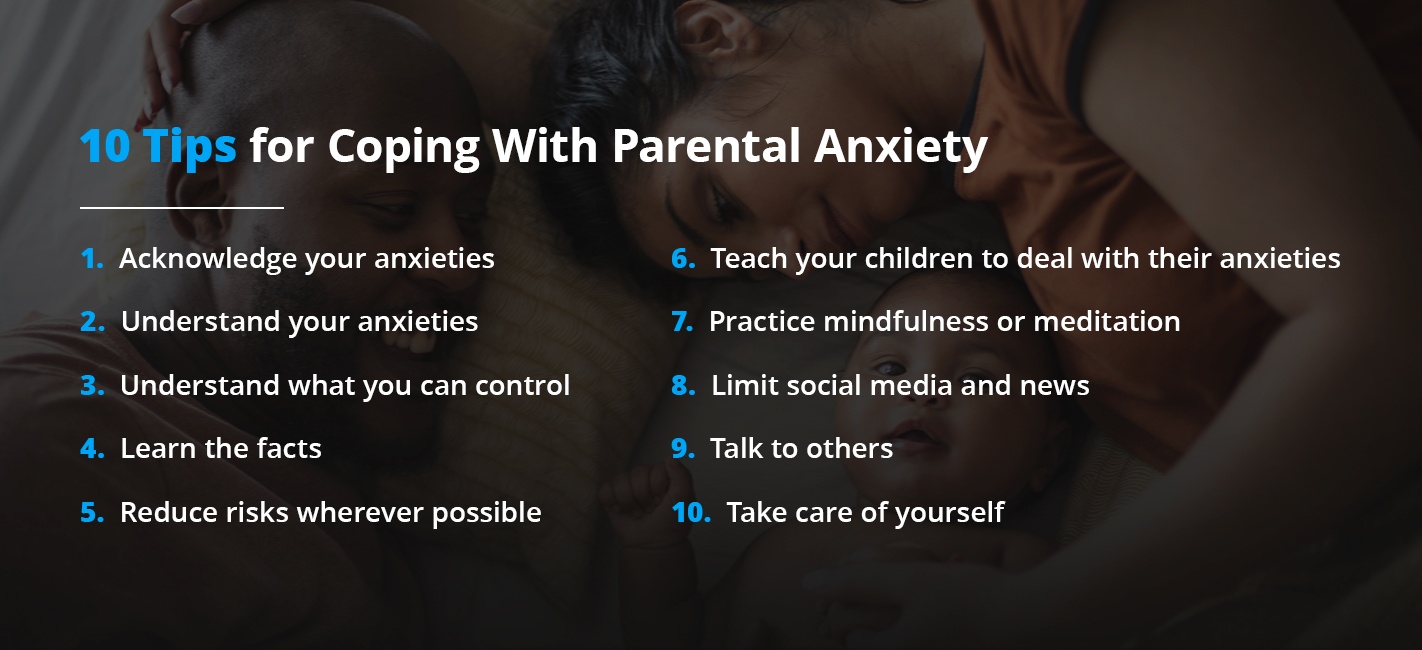Any parent has, at some point, experienced feelings of worry for their children. It’s a natural part of being a parent to have misgivings about all sorts of things, from your child’s health and safety to their academic success to concerns about affording everything they need and more. There are struggles with small day-to-day issues on top of significant ongoing worries, and while all these anxieties are normal, they can sometimes spiral out of control.
Current events like the COVID pandemic have exacerbated typical parental concerns even further. Parents fear their family will contract the virus, worry about what opportunities and socialization kids are missing without their regular routines or whether to send the kids back to in person learning. These are all tough choices, and there are no “right” answers. Parents seem to have more distressing things on their mind than ever, but it’s crucial to understand that there are healthy ways to ease parental anxiety.
What Is Parental Anxiety?
When the worries and concerns for our children go beyond a healthy level, we call it parental anxiety. Too much uncertainty can feel overwhelming for parents, impeding their ability to care for their family or appropriately cope with other aspects of daily life. Worse still, kids can pick up on even subtle cues for anxiety and become more anxious themselves. Sometimes, overly stressed parents can hold children back, keeping them from exploring their world, learning and making mistakes on their own. This phenomenon occurs when the fears are so great that the parent becomes excessively watchful and doesn’t allow for age-appropriate independence in their children.
10 Tips for Coping With Parental Anxiety
When the worries and fears about the future or the unknown start to spiral into more negative thought patterns, are affecting daily life or the anxiety is rubbing off on children, it’s time to take action to gain control. Thankfully, there are many ways anxious parents can put a stop to their negative thought cycles. Here are our favorite tips for how to cope with anxiety as a parent.
-
- Acknowledge your anxieties: Trying to hide from your fears or letting them make you feel more anxious doesn’t help anything. Accept that you feel this way and give yourself some space to experience your worries with healthy limits. It’s completely normal to experience stress as a parent.
- Understand your anxieties: Try to get at the root of your stress and assess whether it comes from a place of genuine danger, or if something else is at play. It’s common for parents to project some of their childhood fears onto their children, or deflect other issues, such as marital problems, into intense focus on the kids. Find out the real reason for your worries and try to address that first.
- Understand what you can control: It’s helpful to accept that you can’t manage everything. Recognize what circumstances lie beyond your control, and deal with the things you can.
- Learn the facts: Arm yourself with factual information and know the risks, so you can try to understand if your worries are realistic. For example, you know you shouldn’t let a toddler have unsupervised playtime in or around a pool because the risk of falling in and drowning is a genuine possibility. However, spending your days worrying about a kidnapping and becoming hyper-vigilant and overprotective is an example of a very unlikely fear taking over your thoughts. Consider researching statistics and understand many of the things we stress about are not very likely to happen.
- Reduce risks wherever possible: Sometimes, it’s helpful to take steps to reduce the danger of whatever we are worried about. Build a sturdy fence with locking gates around your backyard, if that helps your family feel safer. Teach your children correct hygiene techniques to decrease their risk of getting sick. Get to know your neighbors and organize neighborhood watches, or do whatever reasonable action helps calm your specific fears and takes away some of the risk factors.
- Teach your children to deal with their anxieties: When our children are scared of something, we feel that fear along with them. Guide them to break whatever they are afraid of into manageable steps, whether they’re afraid to go down the slide alone or give a presentation in front of their class. Help them practice and go through the steps to ease their fears and set them up for success. In the process, you’ll also relieve some of your worries about whatever your child is facing.
- Practice mindfulness or meditation: These practices are helpful no matter what you’re feeling anxious about. Try guided meditation, yoga practices, mindful chores or sitting and focusing on your breathing or the sounds around you. Release negative thoughts and fears. Involve your children in these activities, too, to teach them healthy ways of dealing with stress.
- Limit social media and news: In today’s world, the barrage of scary headlines is constant. You want to be aware of current events and what’s happening with friends, but try to limit your access to news outlets and social media. Overexposure to the 24-hour news cycle can be detrimental to your mindset, and we can all benefit from being more present with our children and less tuned in to the news stories that only create more worry and anxiety.
- Talk to others: Whether it’s your partner, your friends or other parents in similar situations, talk about your problems. It can help to learn others have the same concerns, or hear about ways others deal with the same issues you are experiencing. Even venting to your partner or a close friend can relieve some of your anxiety.
- Take care of yourself: It’s hard to be a good caretaker for anyone else when you’re not looking after yourself. Make self-care a high priority. Eat well, be sure to get enough sleep, exercise and treat yourself with healthy activities like a warm bath, a good book or favorite TV show at the end of the day. Model good self-care behaviors for your children, too, so they learn by example to take care of themselves and deal with stress in healthy ways.
Contact a Psychologist Near You to Get Help
If you’re dealing with anxiety about your children and struggling to maintain a healthy balance, it may be time to reach out for help. Modern parenting isn’t always easy. And the added concerns of the COVID pandemic and anxiety about children going back to school or missing out on socialization doesn’t help. If your worries are weighing on you, there’s no shame in seeking professional help. For those in Andover and the surrounding communities, Merrimack Valley Psychological Associates are here to help. Contact us today to set up an appointment.



